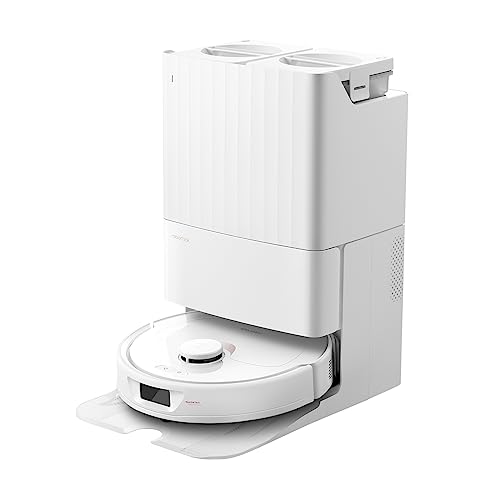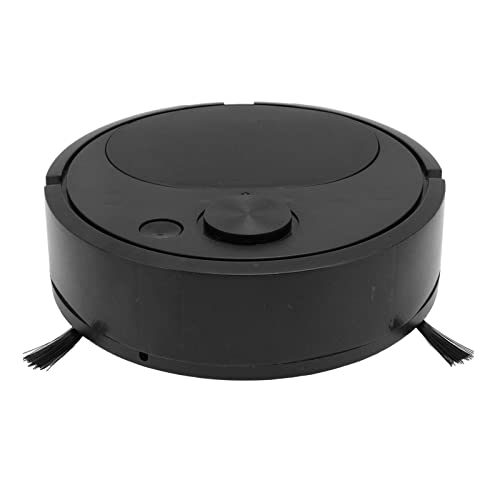Don't Make This Silly Mistake When It Comes To Your Cleaning Robo…
페이지 정보
작성자 Deanne Lander 날짜24-04-13 22:04 조회5회 댓글0건본문
 How to Take Care of a Robot Mop and Vacuum
How to Take Care of a Robot Mop and VacuumA robot vacuum or mop can make cleaning easier. But they also require regular maintenance, such as emptying the dirt bins, washing the reusable cleaning pads according to manufacturer's instructions or disposing of single-use ones and maintaining the sensors clean.
App integration lets you set power and schedules and save maps and adjust settings.
1. Empty the Dirt Bin
The majority of robot vacuum cleaners require regular maintenance, which entails emptying the dirt bins, washing pads and keeping track consumables that need to be replaced. The better you take care of these components, the longer they'll last. Some cleaning machines require a little more care, especially those that have water tanks.
First, make sure the dustbin is cleaned after each cleaning session. This is a simple task but it is essential for the proper operation of your robot. You should also clean the filter periodically. Refer to the user's manual to determine how often you should clean the filters.
Even though the mopping function on your robot can remove lots of dust, a number small particles may still get caught in the cracks and gaps of your flooring. These include dandruff and hair flakes dirt, mites and dust as well as pet hair. It is crucial to use a vacuum cleaner or sweeper regularly to clean these areas to prevent these particles from creating health issues.
If you intend to use your robot mop, then it is essential to select a model that has a high-quality machine and large water and dust tanks. LEGEE for instance, has one of the largest dust bins and water tanks among its peers that means you won't have to stop cleaning or interrupt your robot mop to refill the tank.
Also, don't put any floor cleaners or vinegar in your robot mop's water tank unless it is instructed by the manufacturer. These substances could damage the robot and invalidate the warranty.
A robot mop and vacuum is an excellent way to free up time, so that you can concentrate on other important things such as your family or work. However, some stains and dirt may be too hard for your robot to handle. You should also employ a traditional vacuum cleaner to clean up areas your robot can't reach.
2. The Cleaning Pads
Depending on the way you use your robot mop, the pads can get stained or dirty. This is why it's essential to clean the pads for cleaning regularly. You can wash them at home or in the washing machine along with your regular laundry. Avoid using fabric softener or dryer sheets since they will reduce the absorbency of the pad and could cause it to stop working properly.
If your mop is also an air cleaner, you will need to empty and clean the dust bin periodically. Hybrid models that can vacuum and sweep with dry mops are also affected. Many robot mops have brush attachments which need to be cleaned.
You should always rinse the mop pads thoroughly to remove all dirt and grime. You can also soak the pads in warm water to remove any debris that has remained. After they're clean then you can either let them dry in the air or use a low-heat setting in the dryer. It is recommended to wash your pads every 2 to 3 months.
In the course of cleaning the mop or vacuum is often able to pick up small items that can cause damage to the sensors in your robot and other components. To avoid this happening, you'll need occasionally wipe the sensors clean with a microfiber cloth. This will help the robot move around the room without smacking against furniture or walls.
The majority of robot vacuums and mops are equipped with sensors on their bases that are used to detect obstacles and ensure the machine doesn't get caught in tight spaces. They can become clogged with dust and other debris and you'll need to clean them frequently.
Certain robot vacuum with docking station (warm-corn-h94s5q.mystrikingly.com official website) vacuums have an automatic cleaning cycle that can be run after each use. You can go to the site of the manufacturer to find out if this feature is available for your particular model. Typically, it will take about two or three minutes to complete this cycle and is available through an app or button on the robot itself. This cycle should be run regularly using a mop or vacuum cleaner to ensure the efficiency of sensors and other components.
3. Clean the Charging Station
Most robot mops spray cleaning solution or water directly onto the floor to remove stains. They then scrub them using scrub pad. Some robot mops utilize a disposable mop pads, whereas others can be washed and reused. Whether you choose disposable or reusable mop pads, it's important to empty and wash them between cleaning sessions in accordance with the manufacturer's instructions. It's also a good idea to drain and let the mop base or docking station dry between uses, also to prevent mildew from forming.
Robot mops, like vacuum cleaners, require frequent maintenance to ensure they operate smoothly. This includes emptying the dust bin cleaning the pads, and occasionally cleaning the sensors. If your mop robot is equipped with dirt detectors it is possible to wipe it down gently every couple of cycles to remove dust. This could block the sensors, causing problems with navigation.
Many robot mops have an app that lets you save your home's maps as well as set up cleaning schedules and even keep track of the time when the machine requires maintenance. If you are looking to buy a mop make sure it can connect to Wi-Fi. This will allow you to access the app from any place.
A highly rated model, the Samsung Powerbot Vac + Mop is a smart device with features that help it clean floors without you having to be present. Its map function enables you to create virtual barriers and no-go zones for the robot and also manually guide it to clean a specific part of the room. Its mopping and vacuuming capabilities can be used on carpeting and hard floors, making it an ideal choice for homes with both.
This 2-in-1 robot also has a smart object avoidance sensor that helps it navigate around objects such as furniture. It also comes with self cleaning robot vacuum-emptying bins that reduce the amount that must be cleaned after every use. It can be programmed to run when you are away, which is perfect for busy homeowners. And it's quieter than most other vacuums, which could be a plus for robot vacuum with docking Station those who have noise-sensitive children or pets.
4. Clean the Sensors
The majority of robot vacuums as well as mop-and-vacuum combination models come with an app that lets you set up automatic cleaning schedules, set self cleaning robot vacuum modes and monitor when the device is in need of maintenance. The app lets you manually clean and stop, start, and adjust the settings of your robot from any place in the house.
The app is especially helpful if your robotic cleaner has mapping features, like lasers, cameras or optical dToF, which allow it to save a virtual map of the room and move around furniture. These features can cut down on the frequency of recurring staining on your floors and make your cleaning chores less time-consuming.
If the sensor for your robot's mapping becomes dirty, it may have difficulty navigating through your home. Cleaning these sensors is crucial similar to cleaning the screen of a smartphone or camera lens. This is best done with a dry and clean cloth. If you use a wet cloth or cleaner, you could damage the sensors and cause them to malfunction.
Similarly, it's an ideal idea to clean the brushes on your robot vacuum regularly. This will stop hair tangles and tangles from blocking the motor, and make it easier for your robot to remove debris. It's also a good idea to clean your primary roller brush, as it's usually responsible for removing dirt and will accumulate a lot of dust over the course of time.
Lastly, be sure to only use the cleaning products recommended by the robot's manufacturer. Utilizing other floor cleaners can damage the machine and void your warranty. Most brands recommend using a mix of vinegar and water, or a cleaner that is designed specifically for their robot. Never pour in hot water or a solution that contains abrasives, because they can harm the internal components and leave behind a sloppy residue on your floors. Consult your owner's guide for detailed instructions about how to clean your robot cleaner. This will ensure that it functions efficiently and lasts for longer.

댓글목록
등록된 댓글이 없습니다.


















 광송무역
광송무역
 070-7762-8494
070-7762-8494

